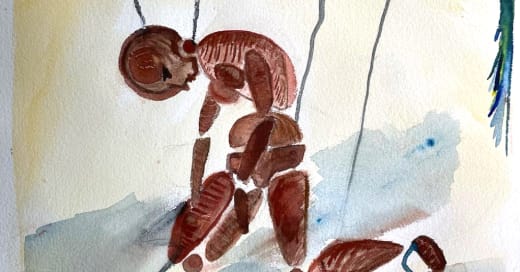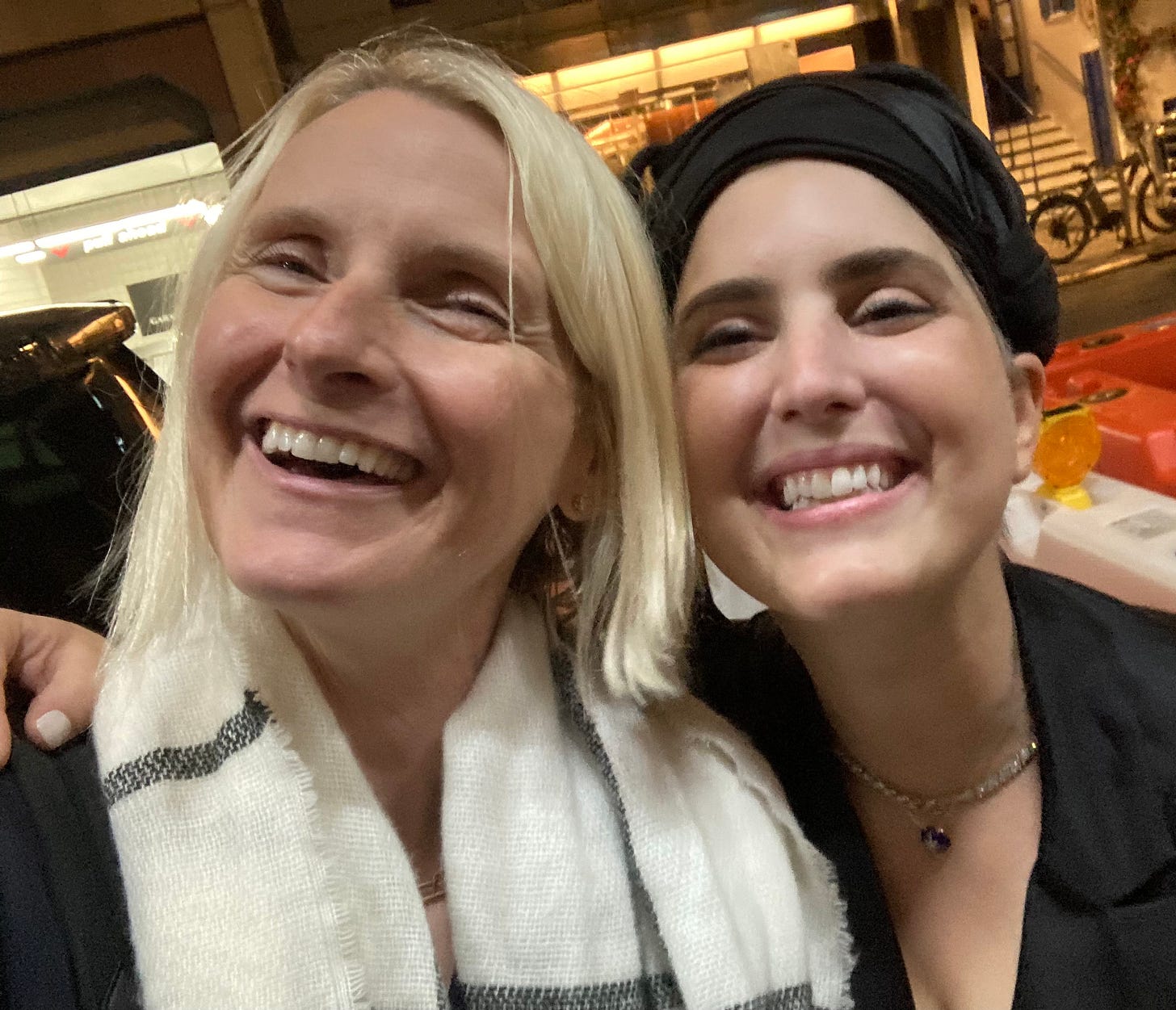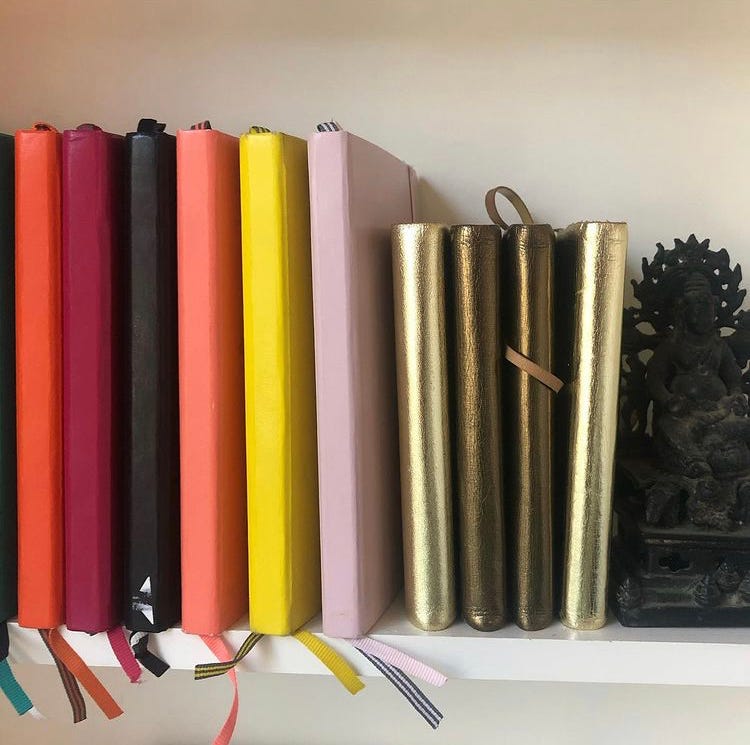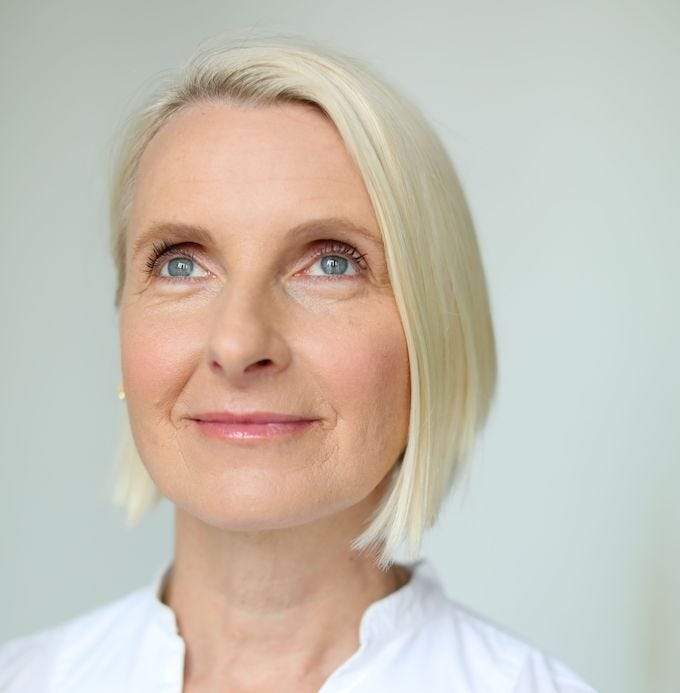Hi friend,
Whenever I hear someone I love being hard on themselves—whether referring to something they did, how they look, or a habit they can’t kick—I have a little rejoinder. I always say, “Don’t talk about my friend like that.”
It’s so easy for me to summon that kind of compassion for others—honestly, it’s the most natural thing in the world. But when it comes time to apply that same instruction to myself, I find it difficult. As someone who struggles with the impossible (at times toxic) tandem of perfectionism and hyper-productivity, I rarely get in bed at night and think, I did good today.
This self-criticism shows up most fiercely for me when I’m writing, but in the last few years, it has mushroomed. I often feel like I’m beyond capacity in every area of my life, and I worry about disappointing people, both personally and professionally. Illness adds another layer. I’d like to give abundantly, to support friends and loved ones and even strangers in any way I can. But I’m constantly aware of my energy reserves, and sometimes showing up for others in the way that I’d like and caring for myself feel at odds. I find myself frustrated when I can’t do both.
I know I’m not alone in this struggle to meet myself with compassion and lovingkindness. I’ve heard from friends, from acquaintances, from members of this beloved community. So many of us are wracked with feelings of not being or doing enough.
I’ve talked about this at length with my dear pal, the beloved and bestselling author
. I first met Liz a few months before the pandemic, when I attended a workshop she led. In it, she shared Letters from Love, her decades-long practice of tapping into unconditional love with a simple question: “Love, what will you have me know today?”That day, I felt a huge amount of resistance and fear about writing my letter, for two reasons. One was that I was terrified I would have to read mine aloud. (At that point, I didn’t know that Liz would never make someone share against their will.) The other fear was a deeper one: What if I ask love to speak to me, and it doesn’t say anything back?
I eventually overcame that fear, and I wrote that letter, though my memory of it has been eclipsed by the letter of the woman who sat next to me. She was unhoused and living at a women’s shelter, and because of that and other struggles, she had recently surrendered her son for adoption. Her suffering and shame were palpable, but the love she tapped into that day was one of the most powerful things I’ve witnessed in my life.
So I do believe in this practice, both because of what I saw that day, and because I've seen how Liz channels it. Over the years, she has sent me voice memos of her daily letter from love, and there’s something contagious about listening to that voice—even secondhand. I’m curious and eager to tap into that power myself, and recently I’ve been saying to her, “I want to learn how to really do this.” Liz’s answer is always the same: “It’s so simple—I can teach you.”
And that’s exactly what I have in store for you today. I’m excited to share with you Liz’s newsletter, Letters from Love, and the essay and prompt below, which she penned especially for the Isolation Journals community. Liz and I will also be hosting a virtual workshop on this subject later this afternoon—it’s available for paid subscribers. This practice is radical and healing. Read on to be transformed.
Sending love and seeking it too,
Suleika
A Very Special Event—
If you’d like a little guidance as you embark on this practice, these smiling faces will be hosting a virtual Letters from Love workshop this afternoon from 1-2pm ET for paid subscribers. Liz is the most inspiring person I know, and it’s not to be missed. Find everything you need to join us here.
Prompt 259. Letters from Love by Elizabeth Gilbert
In 1990, the meditation teacher and author Sharon Salzberg met the Dalai Lama for the first time—in a gathering that included many other prominent philosophers, psychologists, and spiritual leaders. When Salzberg had the opportunity to ask the Dalai Lama a question, she invited him to shed some wisdom and hope upon the terrible problem of self-hatred. The Dalai Lama did not understand the question. This was not because his English was poor; it was because he literally did not understand the question. He kept having to consult with his interpreter to make sure he had heard her right. He kept asking Salzberg for further clarification: Who is the person that you hate? Who is the enemy? Who is it that are you in conflict against? And she kept reiterating: Myself. All the other Westerners in the room nodded in agreement—for they, too, struggled against demons of self-hatred.
When the Dalai Lama finally grasped what these Westerners were getting at here (that they were all at war against themselves, and that they all assumed this was a completely normal state of being), he was dismayed. He said, “I thought I had a very good acquaintance with the mind, but now I feel quite ignorant. I find this very, very strange.”
Most of us don’t find it strange to hate ourselves. For many of us, it’s the default setting of our consciousness. We are wracked by shame, tormented by all the ways in which we have failed, and far more likely to bully ourselves than we would ever bully another human being. We are merciless toward ourselves. And we never, never let ourselves off the hook. Worst of all, we think this is normal. It isn’t. Just because mercilessness is what we have been taught does not make it right, sane, or normal.
I’m not smart enough to know exactly why Western Civilization has created millions of souls who truly believe they are miserable wretches, but I suspect it might have something to do with centuries of religious teachings that specifically instruct us to believe that we’re miserable wretches. It might also have something to do with the inherent cruelty of a capitalistic system that reduces everyone’s value to what they can produce, what they possess, and how much status they hold. This is fundamentally inhumane, and it makes people sick with shame and lack.
Many of us are sick like this. Many of the most compassionate and accomplished people I know still struggle with the belief that they are fundamentally bad and wrong. They certainly have trouble believing that they are intrinsically worthy of being loved. I have struggled with this, too—to the point that it has become my life’s work to dismantle the lie.
My best tool against my distorted habit of self-hatred is to write myself daily letters from love. I have done this for nearly twenty-five years. This practice has carried me through a quarter of a century of challenges—through two marriages and two divorces, through losing the love of my life to cancer, to facing my own addictions and shortcomings. I have certainly had plenty of opportunities to pick up burdens of despair and shame. Through it all, I have managed to find (if only I listen openly and carefully enough) a compassionate voice within that I can tap into, when I need to hear words of love, compassion, and reassurance.
I believe there is a voice of love that is constantly available to all of us—and that it dwells within. I believe that love is our default setting. I believe that simple affection and a stance of unguarded self-friendliness is the natural state of a human being toward herself: Why would it be otherwise? We are the one person we will spend our entire lives with! Why would we be wired to hate the one we are always with, the one we are? It doesn’t even make sense, as the Dalai Lama pointed out.
I invite you today to come back to your true nature of self-friendliness by writing yourself a letter from love. This is not fancy writing, so don’t overthink it. Just write what you have always wished that somebody else would say to you. Give yourself reassurance, forgiveness, affection. You already know how to do this, because you have spoken to other people with loving kindness in your life: It is no different when addressing the self. Write the words that you would say to a beloved friend who was having a tough time—or even a stranger. Write the words that you have offered to other people you loved, who were suffering. Why would you not be entitled to the same grace and kindness? Are you different from everyone else? Are we all not equally in need of mercy and gentleness? We all want to practice universal human compassion, right? But universal human compassion that does not include you is not, by definition, universal. So put down the knife you’ve been holding to your throat, and pick up a pen.
Your prompt for the week:
Write a letter from love. Begin your letter with this question: “Dear Love, What would you have me know today?”
And then let love itself write a letter to you. Trust that you are worthy of this compassion and affection. And trust—please trust, my friend—that every word of your letter is true.
If you’d like, you can post your response in the comments section, in our Facebook group, or on Instagram by tagging @theisolationjournals.
Today’s Contributor—
Elizabeth Gilbert is the author of ten books of fiction and non-fiction—most famously her 2006 memoir Eat Pray Love, which was translated into over thirty languages and sold twelve million copies worldwide. Her TED talk on creative genius is one of the 20 most viewed TED talks of all time, and her book Big Magic has helped untold numbers of readers choose lives of curiosity over fear. Most of all, she just wants everyone to have a nice time. Subscribe to Liz’s newsletter, Letters from Love.
For more paid subscriber benefits, see—
My Year of Love, a photo essay of what I thought was the worst year of my life but was in fact so much more
Shame Shepherds & Grace for Fuck-Ups, an installment of my advice column Dear Susu, where I tackle the question, “How do I get out of my own way so that I can write what needs to be written most?”
Creating Beyond Fear, a video replay of my Studio Visit with the dazzling Elizabeth Gilbert, where we talk about being 1% more curious than afraid and get a tour of her church-turned-creative-sanctuary













Dear Love,
What would you have me know, today?
Lovingly, Mary
Dear Mary,
Not everyone has to like you. Not everyone has to cry when a tree is cut down, as you do. They may care, in other ways. You suffer so and now have bravely placed yourself in a life, in a mind space to elicit great change. But you don't have to lead every charge. Sometimes, dear one, simply planting the seed, walking on, and knowing perhaps it will grow, is enough. You have been battered, bruised, taken for granted, and now, you are practicing self care unapologetically. I hear you using the phrase, "I need" and I feel a hopefulness sprinkled with the green glitter of compassion for you. Know that these things are true. I am in you, I am with you, and always have and always will be.
Lovingly Holding You Tenderly,
Love
I smiled when I read how your self-criticism has mushroomed recently, especially with regards to writing: because out of all the substacks I read yours is, hands-down, my favourite. I’m in awe of how, in relatively few words, you convey all the richness of your inner & outer worlds ❤️